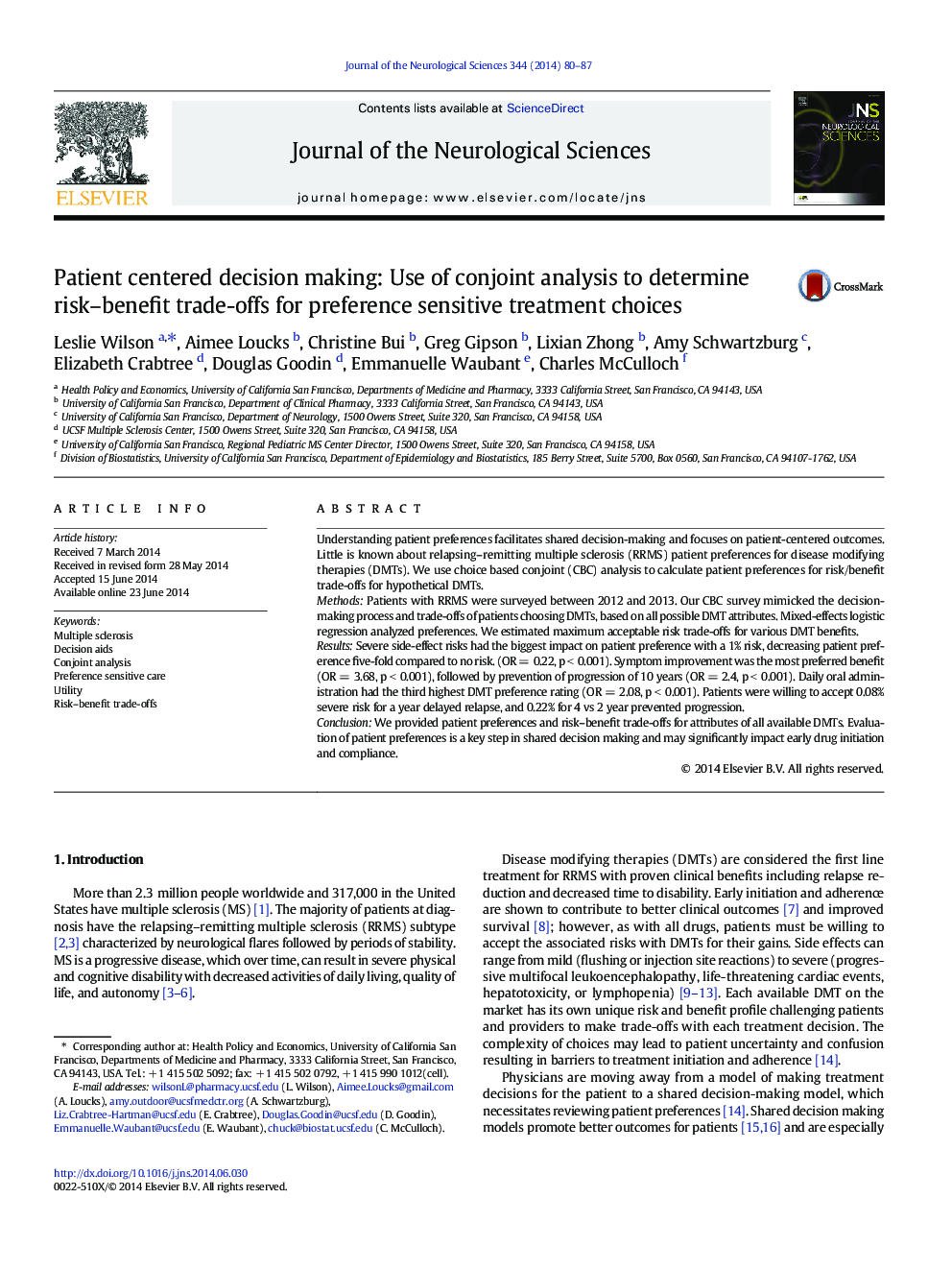| Article ID | Journal | Published Year | Pages | File Type |
|---|---|---|---|---|
| 1913530 | Journal of the Neurological Sciences | 2014 | 8 Pages |
•Patients are willing to accept 1% risk of death/disability for substantial benefit.•Patients are willing to accept 0.2% severe risk for 4 year prevented progression.•Acceptable risks are higher than actual risks likely with use of DMT's.•Severe risks and symptom improvement were most important attributes in DMT choice.•Delays in relapse were least important despite being a major DMT outcome.
Understanding patient preferences facilitates shared decision-making and focuses on patient-centered outcomes. Little is known about relapsing–remitting multiple sclerosis (RRMS) patient preferences for disease modifying therapies (DMTs). We use choice based conjoint (CBC) analysis to calculate patient preferences for risk/benefit trade-offs for hypothetical DMTs.MethodsPatients with RRMS were surveyed between 2012 and 2013. Our CBC survey mimicked the decision-making process and trade-offs of patients choosing DMTs, based on all possible DMT attributes. Mixed-effects logistic regression analyzed preferences. We estimated maximum acceptable risk trade-offs for various DMT benefits.ResultsSevere side-effect risks had the biggest impact on patient preference with a 1% risk, decreasing patient preference five-fold compared to no risk. (OR = 0.22, p < 0.001). Symptom improvement was the most preferred benefit (OR = 3.68, p < 0.001), followed by prevention of progression of 10 years (OR = 2.4, p < 0.001). Daily oral administration had the third highest DMT preference rating (OR = 2.08, p < 0.001). Patients were willing to accept 0.08% severe risk for a year delayed relapse, and 0.22% for 4 vs 2 year prevented progression.ConclusionWe provided patient preferences and risk–benefit trade-offs for attributes of all available DMTs. Evaluation of patient preferences is a key step in shared decision making and may significantly impact early drug initiation and compliance.
